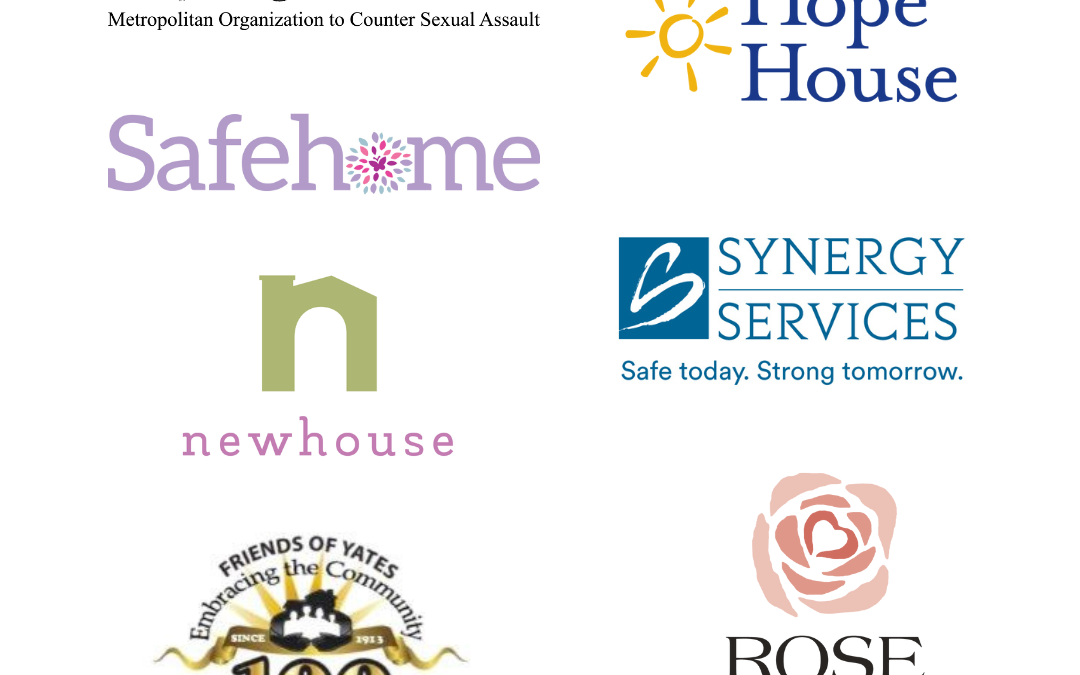These seven leaders of local nonprofit victim-services organizations have a combined experience of 220 years and share a deep passion for survivor advocacy and gender-based violence prevention. They collaborated to author this piece aiming to raise awareness about Kansas’ Amendment 2 and the impact on survivors.
- Julie Donelon, Metropolitan Organization to Counter Sexual Assault (MOCSA), President & CEO
- Lisa Fleming, Rose Brooks, Chief Executive Officer
- MaryAnne Metheny, Hope House, Chief Executive Officer
- Arica Roland, Friends of Yates, Executive Director
- Courtney Thomas, Newhouse, President + CEO
- Robin Winner, Synergy Services, Co-Executive Director
- Heidi Wooten, Safehome, President/CEO
In 2019, the Kansas Supreme Court ruled that the state constitution includes the right to bodily autonomy, including abortion.
On August 2nd Kansans will vote on an amendment to the Kansas Constitution, Amendment 2, which would add language to the constitution allowing for further regulations on abortion.
MOCSA, Rose Brooks, Safehome, Newhouse, Hope House, Friends of Yates, and Synergy Services, anti-domestic and sexual violence agencies, are concerned about the impact additional restrictions to women’s healthcare, including abortion services, will have on survivors.
We know firsthand the life-threatening consequences the passage of Amendment 2 will have for victims of domestic violence, rape, and incest.
Survivors share the dangers and complex barriers they experience including the use of rape and reproductive coercion by their abuser to maintain power and control. By sabotaging birth control, coercing someone into pregnancy, and by forcing rapid repeat pregnancy, the barriers to leaving an abusive relationship increase exponentially.
Perpetrators of rape take away a victim’s right to bodily autonomy. Victims are forced to make difficult decisions, decisions they never thought they would have to make. These decisions must remain in their hands because only they know what is right for them.
Our partners at the National Coalition Against Domestic Violence share that “homicide is the leading cause of death of pregnant women and forcing a person to carry a pregnancy to term can cause physical, mental, and economic harm, as well as creating a legal bond between the victim and the perpetrator.”
The Kansas amendment will allow legislators to pass more restrictive laws than are already in place—and precedence has shown they will. This could include a total ban on abortion with no exception for victims or that emergency contraceptive care is an abortifacient and no longer legal.
Or legislators could make the restrictions so severe, that even if there is an exception for victims, abortion services could be restricted to the point they are no longer accessible. It’s also unclear how an exception would be implemented. What would be considered “proof”? Will we go back to the days of deciding whose experience constitutes a “legitimate rape”?
We’ve seen this happen in Missouri. Legislators passed a law that no longer provides an exception for victims. Victims are forced to birth a rapist’s child. Healthcare providers were so concerned about the ambiguous law that for 5 days at least one hospital system refused to provide emergency contraception for victims.
But even before the trigger law went into effect, the law in Missouri was so restrictive that there was only one medical provider available for victims. Even though, over 77% of Americans believe victims of rape and incest should have access to abortion, the only option for victims in Missouri with a forced pregnancy is to go to Kansas or Illinois. For some, this results in multiple trips, missed days at work, and loss of pay. This law adversely impacts the most marginalized communities including people of color and the LGBTQ+ community who are disproportionately impacted by sexual violence, and victims who are under-resourced or living in rural communities.
Limits on abortion are already in place including counseling, an ultrasound, 24-hour waiting period, prohibiting telemedicine for medication abortion, and required parental consent. Abortions after 20 weeks are only allowed in cases of life or severely compromised physical health.
The right to self-determination is at the core of our work. We will continue to advocate for survivors to ensure they have all options available to them, including abortion care. We can’t address and end sexual and domestic violence unless all individuals have the fundamental right to bodily autonomy.


